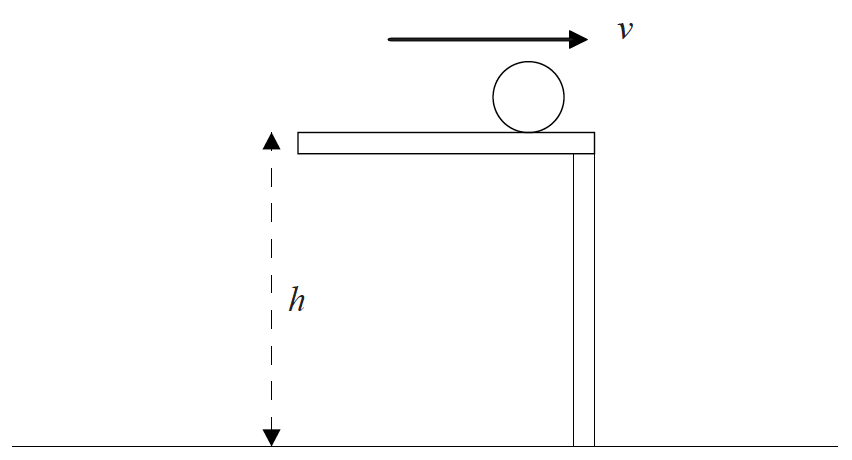Question
Which quantity has the same units as those for energy stored per unit volume?
A Density
B Force
C Momentum
D Pressure
Answer/Explanation
Ans: D
\(\frac{Energy}{Volume}=\frac{work}{area\times length}=\frac{force \times distance}{area\times length}\)
\(=\frac{MLT^{-2}\times L}{L^2\times L}=\left [ ML^{-1}T^{-2} \right ]=pressure\)
Question
The radius of a circle is measured to be (10.0 ± 0.5)cm. What is the area of the circle?
A. (314.2 ± 0.3) cm2
B. (314 ± 1) cm2
C. (314 ± 15) cm2
D. (314 ± 31) cm2
Answer/Explanation
Ans: D
Radius \( =\left ( 10\pm 0.5 \right )cm \)
Area \( =\pi r^{2} \) \(= 3.14(10)^{2} \) =314 cm
\( \frac{\Delta A}{A}=2\frac{\Delta r}{r} \Delta A=2\times \frac{0.5}{10}\times 314 =\frac{1}{10}\times 314 \Delta A=31.4cm \)
Area \(=\left ( 314\pm 31.4 \right )cm \)
A body moves on a straight line. The graphs show the variation of displacement with time. Which graph shows motion with negative acceleration?

Answer/Explanation
Ans
D
Curve (d) indicates retardation motion. Negative acceleration is called retardation. If the velocity of a body is decreasing with respect to time, the acceleration is said to be negative. Retardation is the rate of decrease in velocity. As seen from the graph the displacement in graph (d) is decreasing with time which shows velocity is reducing.
A ball of mass m is projected horizontally with speed v from a height h above the floor. Air resistance is negligible.

The horizontal distance travelled by the ball to the point where it lands on the floor depends on
A. m and h only.
B. m and v only.
C. h and v only.
D. m, h and v.
Answer/Explanation
Ans
C
Equation of trajectory for projectile fired horizontally from a certain height
\( Y = \frac{gx^2}{2u^2}\)
Y = height from which fired.
X = horizontal distance
U = initial horizontal velocity
So , from this we conclude that Range will depend on h and V